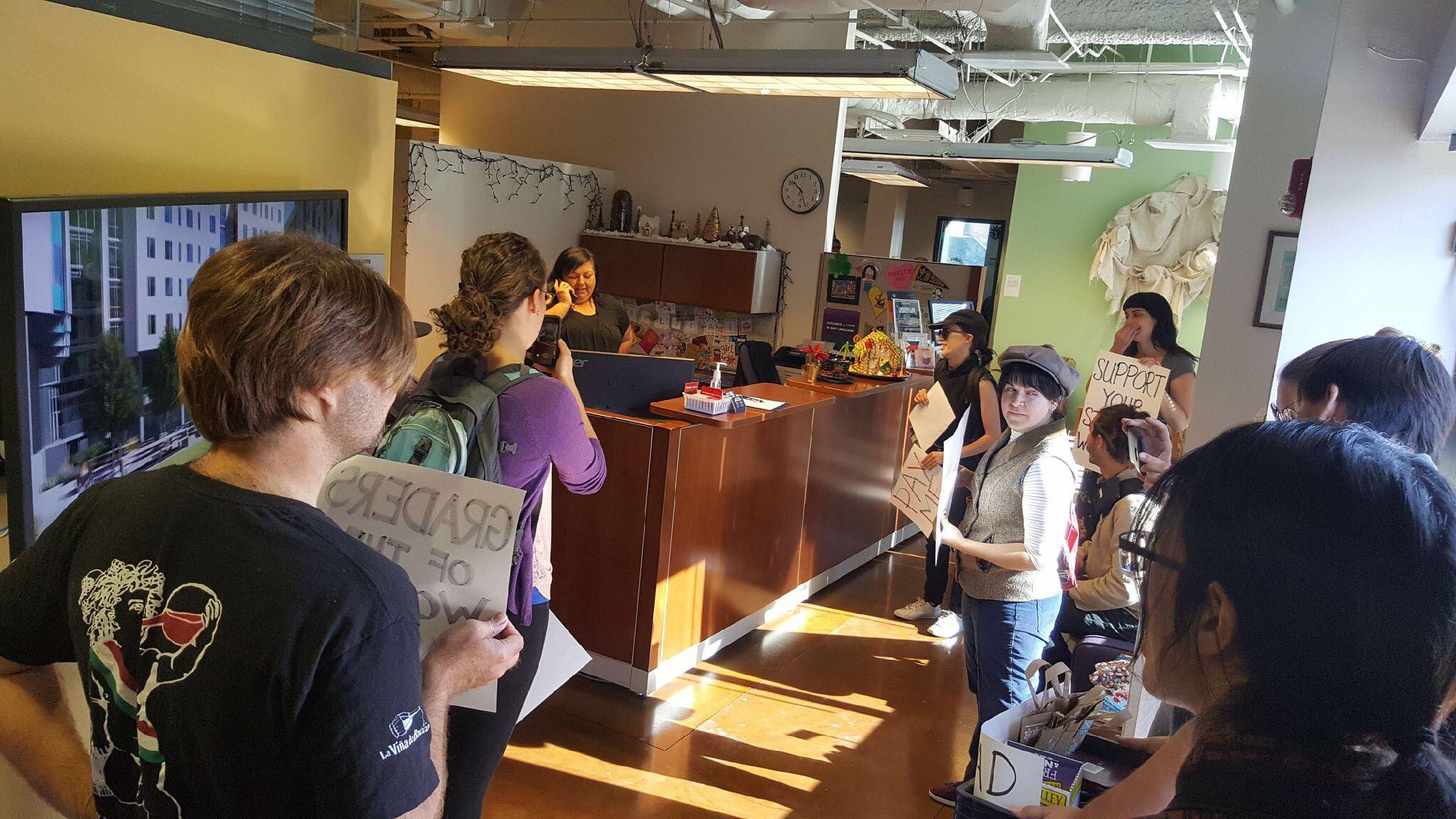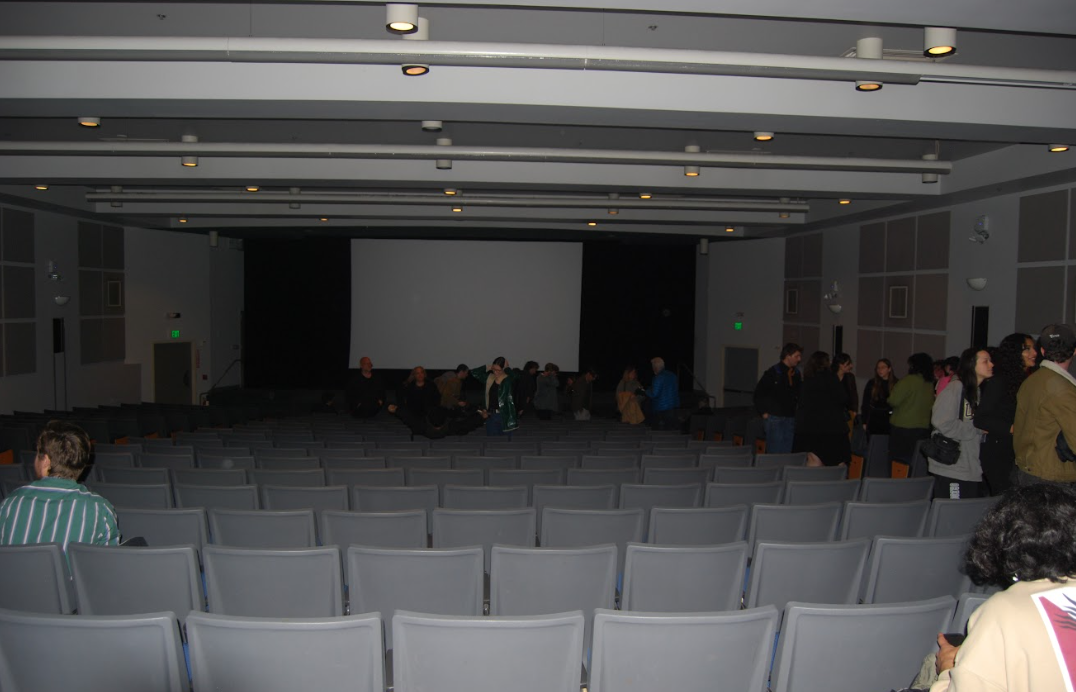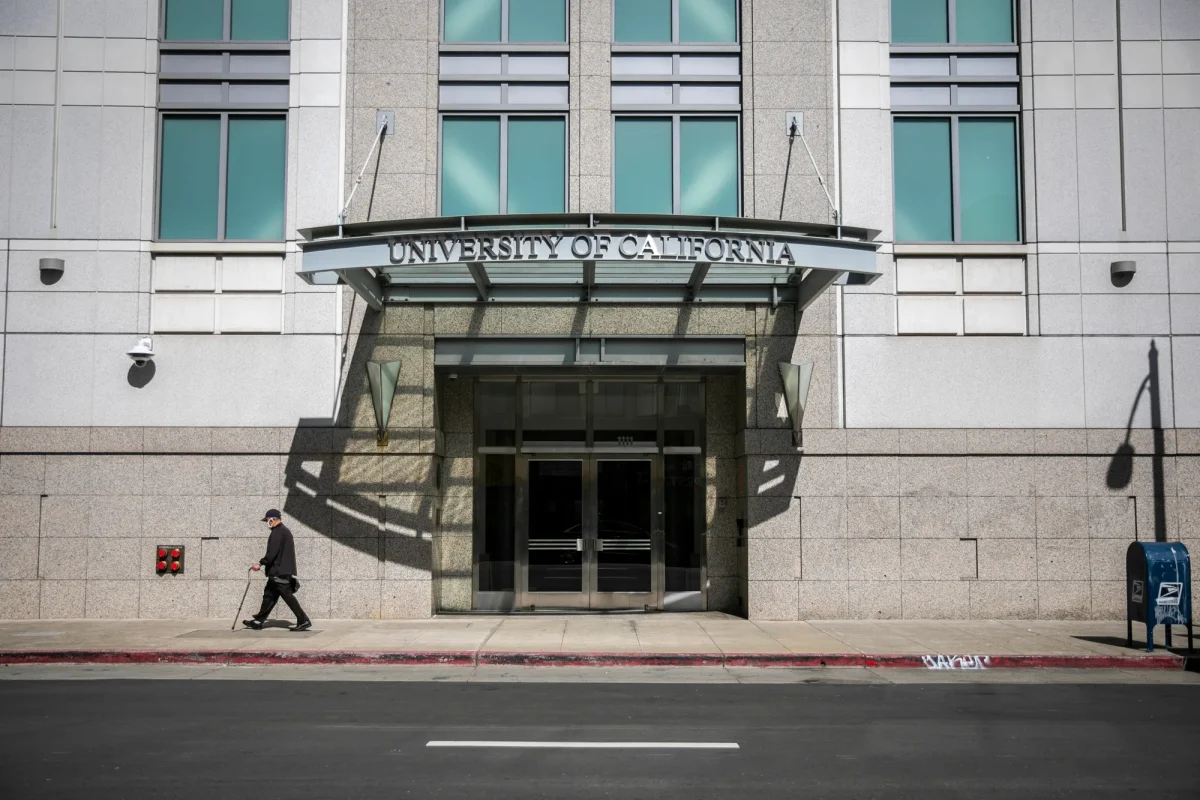Members of the UC San Diego Student Workers Union met to protest working conditions including wages and housing for graduate students during finals week on Dec. 12. After a brief meetup at the Silent Tree in front of Geisel Library, the group marched to the Graduate Division office at the Student Services Building.
Once in the Graduate Division office, the group read aloud a letter addressed to the Dean of Graduate Students, asking for her support during the negotiation process. The aim in reading the letter was to make the students’ needs acknowledged by the administration and staff.
“We wanted to start a dialogue and really say, ‘We’re willing to work with you,’” Davide Carpano, the union’s recording secretary, said. “We negotiate with the University of California Labor Relations [which] actually instruct all the campuses to not talk to us and to not work with us. So I think it’s trying to push back against that narrative, in a way.”
The union aims to negotiate higher wages, affordable housing, and working conditions, which Carpano called the “bread and butter” issues that the union usually focuses on.
“Housing is a really big problem for a lot of UCSD students who get kicked out of [university graduate] housing after two years, and housing is extremely expensive in San Diego,” Carpano said. “A lot of students are using a majority of their stipends on housing.”
When asked whether their demands will relate to the House of Representatives tax plan, Carpano said that they wanted to “keep the demands broad enough so that whatever happens politically, we can negotiate that.”
The Senate recently announced that the House’s version of the bill, which included a tax on tuition waivers, will not be included in the final version of the plan. This was an issue of concern for the union, but on Dec. 22, President Donald Trump signed the final versionl into law.
Following the reading of its letter, the group sat in the Graduate Division office waiting area while the students finished grading assignments from their classes, a form of protest they referred to as a “grade-in.”
“The thing about doing the ‘grade-in’ is that we really want to make our labor visible because, so often as graduate students, we are hidden away in our homes or trying to find space in the library to grade,” Alexia Arani, head steward for the union told the UCSD Guardian. “It’s extremely isolating.”
“For students to come together, grade together, and be in solidarity is the first step to building a movement for us to advocate for each other and for our needs,” Arani said.
Carpano and Arani observed that the response from the Graduate Division staff was disappointing.
“I think the response that we got today was a lot of concern or worry, which I think says a lot that the grad division would be worried that graduate students are there asking for dialogue. It seems like they’re not making themselves available to dialogue.” Arani said. “It doesn’t show a lot of trust in your students.”
The group kept the aisles clear for foot traffic while they sat in the waiting area and graded assignments.
The union is slated to enter contract negotiations with the administration starting in January. The letter highlighted demands that union members ratified to be presented to the university on Jan. 15.
Photo by Tyler Faurot | The UCSD Guardian















Janaye Jones • Dec 25, 2017 at 11:52 pm
I applaud your efforts to be heard. It is important that you learn the process for voicing your concerns.